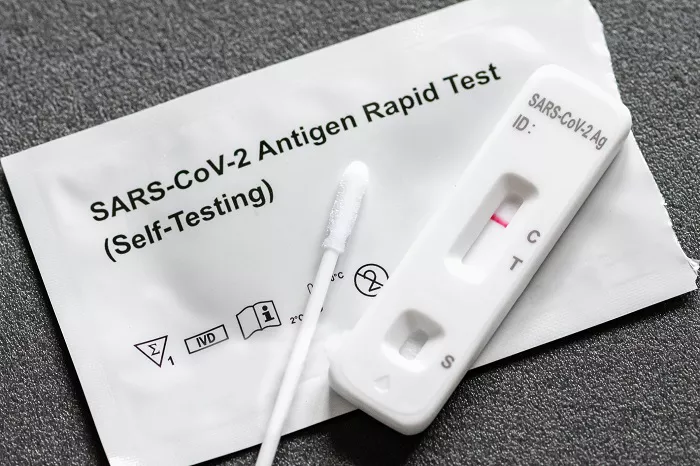Pregnancy is a remarkable journey filled with anticipation, joy, and a myriad of changes. Ensuring the health and well-being of both the mother and the developing baby is of paramount importance during this time. Vitamins play a pivotal role in this endeavor, with prenatal vitamins being a cornerstone of maternal nutrition. One key component of these prenatal supplements is DHA, a vital nutrient that supports fetal development and maternal health. In this comprehensive article, we will delve deep into the world of prenatal vitamins, focusing particularly on the role of DHA. From its definition and sources to its benefits and recommendations, we will explore how this essential vitamin aids in promoting a healthy pregnancy. So, let’s embark on this journey of discovery, where the spotlight is firmly on vitamins and, more specifically, the indispensable role of DHA.
What Are Prenatal Vitamins, and Why Are They Important?
Before we dive into the specifics of DHA, it’s crucial to establish a foundational understanding of prenatal vitamins. Vitamins, as organic compounds essential for various physiological functions, are indispensable for overall health. During pregnancy, when a woman’s body undergoes profound changes to support fetal growth, vitamins become even more critical.
Vitamins are organic substances that are required in small quantities for various physiological processes within the body. They play a crucial role in maintaining overall health, and their importance is amplified during pregnancy. Proper vitamin intake ensures that the mother’s body has the necessary nutrients to support her well-being and that of the developing fetus.
Prenatal vitamins, often simply referred to as “prenatals,” are specialized supplements designed to meet the unique nutritional needs of pregnant women. These supplements typically contain a combination of vitamins and minerals crucial for maternal health and fetal development.
Now that we have laid the foundation, let’s zoom in on the star of our discussion: DHA, or Docosahexaenoic Acid.
Understanding DHA: A Vital Component of Prenatal Vitamins
DHA, a three-letter acronym that packs a powerful punch in prenatal nutrition, stands for Docosahexaenoic Acid. This long-chain omega-3 fatty acid is well-known for its integral role in the development of the nervous system, particularly the brain and eyes. While DHA is crucial throughout life, its importance during pregnancy cannot be overstated.
Vitamins like DHA, which are vital for fetal development, can have a lasting impact on the health and well-being of the child. In the context of prenatal vitamins, DHA is often included for its potential to promote optimal brain and eye development in the growing fetus.
The Importance of DHA During Pregnancy
Prenatal vitamins containing DHA serve a dual purpose: they support the health of the expectant mother and contribute significantly to the development of the baby.
Vitamins for Maternal Health: DHA, along with other essential nutrients found in prenatal vitamins, plays a role in supporting the overall health of the pregnant woman. It can help reduce the risk of certain pregnancy-related complications, including preterm birth and preeclampsia.
Vitamins for Fetal Development: The primary reason DHA is included in prenatal vitamins is its critical role in fetal development. DHA is a major component of the brain and the retina of the eye, making it an essential nutrient for the growth of these vital organs in the developing fetus.
Sources of DHA in Prenatal Vitamins
Now that we understand the significance of DHA, you might be wondering where this essential nutrient can be found.
Vitamins containing DHA can be obtained from a variety of sources. It is naturally present in certain foods and can also be synthesized from other omega-3 fatty acids. However, the most common source of DHA in prenatal vitamins is fish oil.
Fish oil is rich in omega-3 fatty acids, including DHA and EPA (Eicosapentaenoic Acid). These fatty acids are derived from the tissues of fatty fish like salmon, mackerel, and sardines. Fish oil supplements, which are widely available, provide a convenient way to ensure an adequate intake of DHA during pregnancy.
Algal oil is another source of DHA that is becoming increasingly popular, especially among individuals who follow a vegetarian or vegan diet. This oil is derived from algae, which are naturally rich in DHA. Algal oil supplements provide a plant-based alternative to fish oil for meeting DHA requirements during pregnancy.
The Benefits of DHA in Prenatal Vitamins
The inclusion of DHA in prenatal vitamins is backed by a growing body of research highlighting its numerous benefits for both mother and child.
Enhanced Brain Development: DHA is a key component of brain tissue, and studies suggest that adequate DHA intake during pregnancy may support optimal brain development in the fetus.This can potentially have a positive impact on a child’s cognitive function and learning abilities later in life.
Improved Vision: DHA is also concentrated in the retina of the eye, where it plays a crucial role in visual development. Ensuring an adequate supply of DHA during pregnancy may contribute to better visual outcomes for the baby.
Reduced Risk of Preterm Birth: Some research indicates that DHA supplementation during pregnancy may reduce the risk of preterm birth, which is associated with various health challenges for both the baby and the mother.
Lower Risk of Postpartum Depression: Maternal mental health is a crucial consideration during pregnancy. Adequate DHA intake has been associated with a reduced risk of postpartum depression, which can have significant implications for the well-being of both the mother and the baby.
Healthy Heart and Immune System: DHA also plays a role in supporting the cardiovascular system and the immune system. These benefits extend beyond pregnancy, promoting overall health and well-being.
Recommended Dosage of DHA in Prenatal Vitamins
The recommended dosage of DHA in prenatal vitamins can vary based on individual circumstances and medical advice. However, there are general guidelines to consider.
Vitamins are typically dosed in micrograms (mcg) or milligrams (mg), and DHA is no exception. The American Pregnancy Association suggests that pregnant women aim for a daily intake of at least 200 mg of DHA. This can often be achieved through a combination of dietary sources and supplements.
Prenatal vitamins with DHA are available over the counter and by prescription. These supplements are specially formulated to meet the nutritional needs of pregnant women, including the recommended dosage of DHA.
Consulting with a healthcare provider is essential to determine the appropriate dosage of DHA based on individual health factors and dietary habits. Some women may require higher doses to address specific health concerns or dietary restrictions.
Choosing the Right Prenatal Vitamins with DHA
Selecting the right prenatal vitamins with DHA is a crucial step in ensuring a healthy pregnancy. With numerous options available on the market, it’s essential to make an informed choice.
Consult Your Healthcare Provider: Before starting any prenatal vitamin regimen, it’s advisable to consult with a healthcare provider or obstetrician. They can provide personalized recommendations based on your health history and dietary habits.
Look for Reputable Brands: When choosing prenatal vitamins, opt for well-established and reputable brands. High-quality supplements are more likely to provide accurate dosages and be free of contaminants.
Read Labels Carefully: Examine the label of the prenatal vitamin to ensure it contains DHA in the recommended dosage. Additionally, check for other essential vitamins and minerals like folic acid, iron, and calcium.
Consider Your Diet: If you already consume a diet rich in omega-3 fatty acids, including fatty fish, you may need a lower dose of DHA in your prenatal vitamins. Your healthcare provider can help you determine the appropriate dosage based on your dietary intake.
Evaluate Allergies and Dietary Restrictions: If you have allergies or dietary restrictions, such as vegetarian or vegan preferences, choose prenatal vitamins that align with your dietary needs. Algal oil-based supplements can be an excellent option for vegetarians and vegans.
Be Mindful of Side Effects: Some individuals may experience gastrointestinal discomfort when taking prenatal vitamins with DHA. If you encounter any adverse effects, consult your healthcare provider for alternative options or recommendations.
Conclusion
In the journey of pregnancy, vitamins play a starring role, with DHA being one of the key actors in ensuring a healthy outcome for both mother and child. As we’ve explored in this article, DHA, or Docosahexaenoic Acid, is a crucial component of prenatal vitamins known for its contributions to brain and eye development, reducing the risk of complications, and supporting maternal mental health.
Vitamins, in the form of prenatal supplements, bridge the nutritional gap during pregnancy, providing essential nutrients like DHA that may be challenging to obtain through diet alone. However, the selection of the right prenatal vitamins, in consultation with a healthcare provider, is paramount to meet individual needs and ensure a healthy pregnancy.
In the world of prenatal nutrition, DHA stands as a testament to the importance of vitamins in shaping the health and well-being of future generations. Its role in promoting the growth and development of the next generation’s minds and bodies is a testament to the incredible power of vitamins during this remarkable journey called pregnancy.
[inline_related_posts title=”You Might Be Interested In” title_align=”left” style=”list” number=”6″ align=”none” ids=”2402,2420,2262″ by=”categories” orderby=”rand” order=”DESC” hide_thumb=”no” thumb_right=”no” views=”no” date=”yes” grid_columns=”2″ post_type=”” tax=””]


































